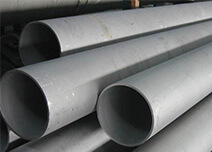- SITEMAP
- CONTACT US
- 8618267732328
News
Credibility ,the lifeblood of enterprise!
- Fittings
- Butt Welding Fittings
- Forged Fittings
- 180 Degree Elbows
- 90 Degree Elbows
- 60 Degree Elbows
- 45 Degree Elbows
- 30 Degree Elbows
- Equal Tee
- Reducing Tee
- Concentric Reducer
- Eccentric Reducer
- Lap Joint Stub End
- Outlets
- Cap
- Bend
- Cross
- Coupling
- Stainless Steel Lateral Tee
- Bellows Expansion Joints
- Flexible Metal Hose
- Non-Standard/Custom Fittings
- Bleed & Flushing Rings
- Types of Flanges
- Anchor Flanges
- Blind Flanges
- Expander Flanges
- High Hub Flanges
- Lap Joint Flanges
- Long Weld Neck Flanges
- Nipoflanges
- Orifice Flanges
- Plate Flanges
- Ring Type Joint Flanges
- Reducing Flanges
- Slip On Flanges
- Socket Weld Flanges
- Spectacle Blind Flanges
- Square Flanges
- Spades & Ring Spacers
- Threaded Flanges
- Welding Neck Flanges
Selection of stainless steel for handling acetic acid CH3COOH
Acetic acid is a weak reducing acid. It is used in plastics manufacture and is a constituent of foods as vinegar. Ferritic stainless steels such as 430 type can be considered but normally the 304 types are used for most applications, including handling and storage.
Acetic anhydride (CH3CO)2O can be aggressive to either 304 or 316 types in the absence of any water and in the presence of chlorides. Peracetic acid CH3C(O)OOH (peroxyacetic acid) should be safe with stainless steel.Vinyl acetate C4H6O2 may be considered with the 316 grades for ambient temperature storage applications.
Commercially concentrated acid is around 99wt. % (glacial acetic acid).
Corrosion resistance of stainless steel
Ferritic stainless steel such as the 430 / 1.4016 type can be considered for most acid concentrations at ambient temperatures, but normally austenitic are preferred as pitting corrosion has been reported in industrial plant and equipment.
The 304 types are normally considered as suitable grades for most applications, including handling and storage.
The iso-corrosion diagram 0.1mm/year lines for the 316 / 1.4401 (red) types show that they can be expected to provide better resistance over about 5% concentrations, at temperature over 90 degC, than the 304 (blue) types.
(The boiling point corresponds to the red line for 316 types)
At concentrations above about 80%, the 316 types are usually considered a better choice than the 304 types, especially where temperatures exceed 70 degC, where there is a risk of localised attack to the 304 types.
For processing equipment, 316L is considered a better choice than the 30
4/304L or 316 types.
Intergranular attack can be an issue in weld heat affected zones, if acid contact temperatures exceed around 60 degC. As with other similar acid contact applications, the low carbon, 304L should be considered rather than the standard 304 types.
In common with most acid handling applications, chloride contamination can cause pitting corrosion and so in these cases more pitting resistant grades may need to be considered. Contamination of acetic acid with the more aggressive formic acid (HCOOH) can result in an unexpected reduction in corrosion resista
nce of the 316 types. The 304 types may be particularly vulnerable under these conditions.
Acetic anhydride (CH3CO)2O
Acetic anhydride (CH3CO)2O can be aggressive to either 304 or 316 types in the absence of any water and in the presence of chlorides.
The risk of pitting corrosion can be reduced if grades such as the austenitic 1.4539 or the 6% molybdenum grades are considered in these extreme conditions.
Peracetic acid CH3C(O)OOH
Peracetic acid CH3C(O)OOH which is also known as peroxyacetic acid, is used as a disinfectant (sanitiser) in food, medical and water treatment related industries.
It should be safe for uses that involve contact with stainless steel items.
Vinyl acetate C4H6O2
Vinyl acetate C4H6O2 is an intermediate product used in the manufacture of chemicals such as adhesives and paints.
The only information available suggests that the 316 types should be suitable for ambient temperature storage applications.
Source: Yaang Pipe Industry Co., Limited (www.yaang.com)

Tel No:+86-18267732328 / Email:[email protected]
Address:Longwan District, Wenzhou, Zhejiang Province, China.
Copyright Notice © www.yaang.com Yaang Pipe Industry Co., Limited All rights reserved.
Yaang Pipe Industry Co., Ltd. is an international supplier of piping solutions for flange, butt welding fittings, socket welding fittings and threaded fittings. Our products are widely used in different industrial fields, including oil and gas, chemical industry, petrochemical industry, power plant, pulp and paper industry, environmental and water conservancy engineering, engineering projects, etc.






